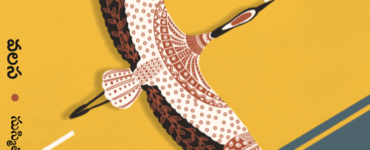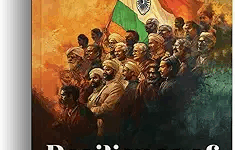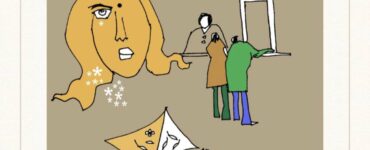 Travel is something that seems like more like a dream in these times. It features mostly in discussions and in looking back at older travel photographs. It has been on my mind for a long time in 2020 not because I was making plans to travel but because I was working on a collection of travel essays that I edited. The volume, Across and Beyond, was published in 2020. Working on it, editing the essays, made me travel vicariously into the worlds drawn up in words by my wonderful contributors, into the various journeys, literary and personal, that they wrote about.
Travel is something that seems like more like a dream in these times. It features mostly in discussions and in looking back at older travel photographs. It has been on my mind for a long time in 2020 not because I was making plans to travel but because I was working on a collection of travel essays that I edited. The volume, Across and Beyond, was published in 2020. Working on it, editing the essays, made me travel vicariously into the worlds drawn up in words by my wonderful contributors, into the various journeys, literary and personal, that they wrote about.
Travel writing is something that has always interested me, as a writer and as a reader of as well. It is something in which I have an academic interest as well and it is that I have been working for some time now. My first work as a creative writer has been a collection of my travel essays written over a period of years, personal essays about my various travels. As I work from home, and learn to deal with the new way of life, trying to deal with the strange, difficult times, as the virus rages virulently, I indulge much more in travels of the literary kind.
One of the books that landed on my table sometimes towards the end of 2020 was an English translation of the first travelogue by a Bengali woman who was writing from England. The book in question is Krishnabhabini Das’ Englandey Bangamahila translated into English as A Bengali Lady in England by Nabanita Sengupta. This is not the first translation of the work and I am reminded of Simonti Sen’s fascinating work in the area.
Krishnabhabini Das travelled to England with her husband in 1880 and in 1885 her travel account was published. Published anonymously from Calcutta, Englandey Bangamahila was the first work to be written by a woman from England. Educated mostly by her husband Devendranath Das, Krishnabhabini’s work is a wide-ranging account of the British race and culture. Women were mostly confined to the domestic space in the nineteenth century and travel was a complete taboo for them. However, it is interesting to see a number of women travelling in the times. Most of them travelled along with their husbands, not just from Bengal but from various parts of India as well.
Krishnabhabini Das voices nationalist sentiments in her account. She refers to the British as oppressors who exploit. She does not write about her personal life in England and rather concentrates on the social and cultural aspects of the place and times. The voice that we hear is that of a woman sympathetic to the condition of women in the times. It is through this that the persona of the writer is revealed in the work. She gives a detailed account of British society, lifestyle, politics, culture and economics.
This is how she writes of the city of London in the chapter titled “London” –
London is a vast city; the biggest in the world. …Though London is already a vast city, it is still expanding. Wherever you go, you shall come across hundreds of ongoing constructions which merge the adjacent localities with the city. . . .
At first sight you can call it the “city of shops,” “city of theatres”, or “city of wealth”, but after staying here for a few days it becomes difficult to decide what kind of a city London primarily is.
Writing about the British race and character, she writes about the women she sees in the city of London – “When these ladies, fashionably dressed, ride past in great speed, they resemble goddess chamundi all set for war.” Krishnabhabini writes in detail about the men, the young people, the children, revealing her acute observational skills. She compares them with people and races she knows. This is an important aspect of her account, she looks back to her life in India, to things she knew in India, to the Indian way of life, comparing, contrasting and commenting.
She commends the education system that she learns about, speaks of the health care system, of charitable missions, churches, of the architecture of buildings that strike her eye, of theatres, opera houses, auditoriums, hotels and pubs –
… I have talked about many big buildings, palaces, etc and now I shall wind up after telling you about the houses that have been dedicated to suradevi.
There is a sense of disapproval as she talks about how “Men and women with ugly appearances throw themselves at suradevi’s feet.”
The book has three poems that are personal in tone and speak of freedom for India, something that is on her mind even when she is abroad. Krishnabhabini’s fascinating account takes us into the world that she observes in her own style and is an important document of travel and women’s history of the nineteenth century.
*









Add comment